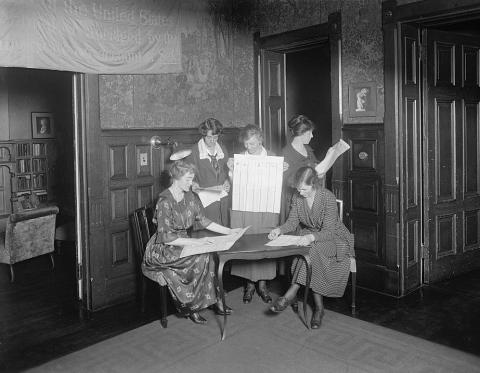Discovering the political leanings of your ancestors can help color their stories, and can lead you on a fascinating journey through this important historical aspect of American culture.
D. Joshua Taylor, President of the New York Genealogical and Biographical Society and co-host of the Genealogy Roadshow, will teach us how to explore the politics of our ancestors on October 12 at the New York Public Library. This worthwhile pursuit is often overlooked by genealogists due to the types of records used for investigation, which aren’t always found in standard genealogical repositories.
We recently spoke with Josh to ask him a few questions about the upcoming talk. His answers are italicized below:
Why should we explore this part of our family history? What can we hope to learn?
Genealogists are always looking at ways to discover more information about an individual’s life. Political leanings are often tied with occupations, social status, and a family’s economics. All of these can be useful pieces of data to gather about an individual ancestor.
How easy is it to discover the politics of our ancestors? What kinds of sources will you discuss how to use in your talk?
It can be a bit tricky, as records are typically scattered in various locations. We will talk about ways to identify potential political leanings of an individual and then ways to find actual records of political parties and affiliations (including membership lists, fundraising records, etc.)
How far back in American history can we reasonably hope to get? If we had ancestors around during the Revolution, how easy is it to find out their political activities?
You can trace your family’s political leanings all the way back to the American Revolution – when the Federalists and Anti-Federalists began to form over various ideals for the nation. These can be a bit trickier, although sometimes one's political leanings are known through the company they keep.
Do political leanings often correlate with any other aspect of an ancestor’s story?
Yes! And this becomes a key way to search for an individual’s political affiliations. During the talk we will discuss a few historical political parties and point out the general similarities amongst their members (usually tied to occupation and religion).
What are the major/surprising differences between how we think about politics and how our ancestors may have? Are there any surprising similarities?
In some cases, a wider base of the population seems to be involved from a political perspective in the present generation than in the past, but we shouldn’t discount the role a relative might have played at the local level. Political disputes aren't just a 21st or 20th-century invention – they certainly involved our ancestors from the very beginning.
What’s your favorite Presidential election (or any other political story) from American history and why?
That is a difficult question to answer. I’ve also enjoyed the story of Edmond G. Ross and his vote to acquit President Andrew Johnson during his impeachment trial. No matter what you believe about the story (why did he do it, was he bribed, etc.), it is still an incredibly interesting part of our nation’s history.
If you could choose any politician from American history, who would you most like to discover you’re related to?
Alexander Hamilton (without a doubt – and that was before Hamilton came to be).
More about the event
Often cataloged and structured with historians in mind, the material needed for this kind of inquiry is typically organized by political parties, not by specific names. This means a slightly different research method is required – Josh Taylor will provide his recommended method and elaborate on the many resources you can use to make amazing discoveries.
Josh will go over:
- The importance of familiarizing yourself with historical political parties of the past.
- How to use your ancestor's social and economic context to determine what political affiliations they may have had.
- How to find and access the records of a particular political party.
This event is free and open to the public, but seating is first come, first served so make sure to arrive early.
For more details, please visit our on our events calendar.
